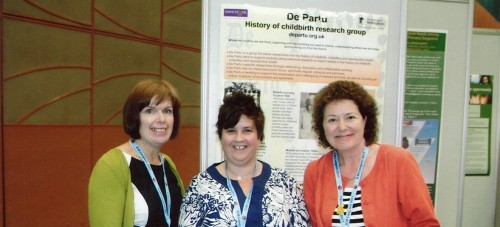On the 29th of April, which is the 65th anniversary of the liberation of the Dachau Concentration Camp, the exhibition “They gave us hope again” was opened at the Dachau Concentration Camp Memorial Site. The exhibition is dedicated to an historical aspect of the Dachau Concentration Camp which has received only little consideration hitherto: the fate of female prisoners, among whom there were also pregnant women. Between December 1944 and February 1945, seven Jewish women brought children into the world amidst the terror at Kaufering I, a satellite camp of the Dachau Concentration Camp – all of them survived.
While pregnancies were not uncommon in concentration camps, women and their children were usually murdered. In order to clarify the exceptionality of these seven mothers surviving in the murderous concentration camp system, the exhibition implements the stories of the persecution of these women in historical context.
The biographies of the women are presented in seven parts: life before deportation, arrival and imprisonment at the concentration camps Auschwitz and Plaszów, transfer to the Dachau satellite camps, their experiences as female prisoners, the discovery and handling of their pregnancy and the births of their children at Kaufering I, the conduct of the SS, the evacuation of the camp and their liberation in Dachau as well as their lives after the Holocaust. All seven women were from Hungary or from regions annexed by Hungary and were already pregnant at the time of their deportation. They survived the selection process at Auschwitz and other concentration camps until arriving at the Dachau satellite camp Kaufering I in early December 1944, after discovering the pregnancy. They brought their children into the world there under catastrophic conditions.
After giving birth, the mothers Eva Fleischmannovà, Sara Grün, Ibolya Kovács, Elisabeth Legmann, Dora Löwy, Magda Schwartz and Miriam Rosenthal formed a so-called Schwangerenkommando (pregnant unit) and were forced to work in the prisoners’ laundry. As late as 13 March 1945, the head SS camp physician at the Dachau Concentration Camp issued an order for the mothers to be transferred to the Bergen-Belsen death camp. The order, however, was not carried out.
The exhibition can be visited from 30th April 2010 to 31st May 2011.
Guided tours for groups through the exhibition can be requested under: bildung@kz-gedenkstaette-dachau.de
Dachau Concentration Camp Memorial Site
Alte Römerstraße 75
85221 Dachau



